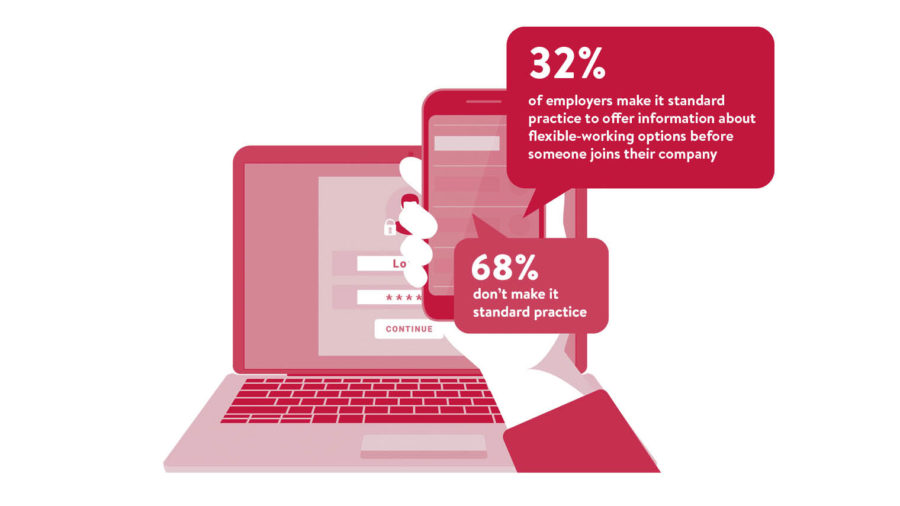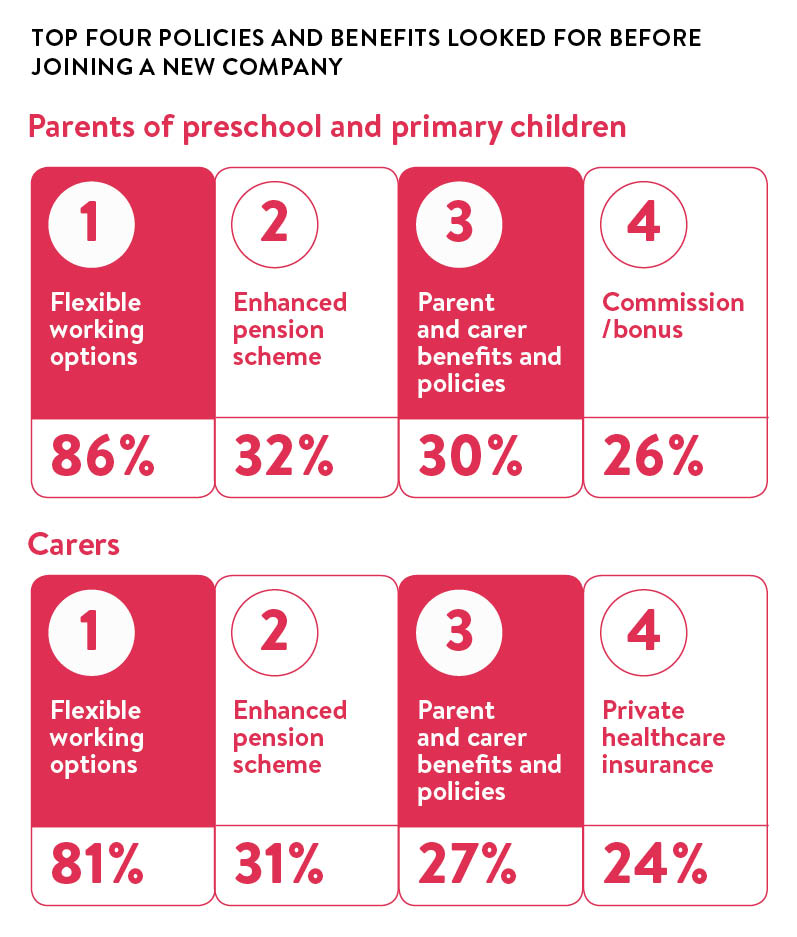Employees would rather work flexibly than have a salary increase, according to My Family Care’s research in partnership with global recruitment experts Hydrogen. The survey of 1,587 UK employees and 310 employers found that 53 per cent of employees would choose flexible working over a 5 per cent salary increase. This figure is even higher for working parents and carers with 58 per cent willing to sacrifice a 5 per cent pay rise for the chance to work flexibly.
Flexible working is in such high demand that it’s the top benefit that people look for when considering a new role, far surpassing other benefits such as an enhanced pension scheme, the survey found. An overwhelming 81 per cent of employees would look for flexible working options before joining a company.
“Give your employees a bit of flexibility, some practical support and some cultural empathy, and they will be some of the most loyal and productive members of any team,” says Ben Black, director of My Family Care, an award-winning provider of family-friendly employer solutions to the some of the UK’s best employers, from banks and City law firms to big multinationals.

The findings also highlight a significant disconnect between the high numbers of people wanting to work flexibly and the low numbers of employers who embrace it. More than half of the UK’s working population want the opportunity to work remotely or from home, but just a third were encouraged to do so, with many feeling a constant stigma around it.
The research found that 54 per cent of all employees want to work remotely or from home at least once a week yet only 34 per cent actually do. The desire for flexible working is not simply the preserve of working parents and carers, although it’s the practical need of this group that dominate the headlines
The results also reveal the disconnect between the hours that people work and want to work. While just over a third of people have flexible start and finish times, almost double this number said they wanted the same flexibility.
The research confirms that both employees and employers believe in the benefits of flexible working. Employees who are satisfied with their work-life balance are almost five times more likely to be working at a company that fully embraces flexible working. More than half of employers believe that employees would be less stressed if working flexibly and 92 per cent of employers think those who work flexibly are just as, if not more, productive than those who work regular hours.
Despite these benefits, some employees are reluctant to ask for flexible working. Some of the barriers stopping employees from asking for flexible working include a fear of their line manager’s reaction, a company culture that isn’t supportive of flexible working and a potentially negative impact on their careers.
The results show that some employers genuinely understand the benefits reaped from offering flexible working with almost two-thirds of employers believing that employees would be more loyal and much more likely to stick around longer if allowed to work flexibly. Yet there is a dichotomy here. Only a third of employers raise the topic of flexible working during the interview process and only 6 per cent detail the options that are available on their company’s website. Employers clearly still have much work to do to promote flexible working to talent.

And flexible working will become even more crucial in the future, particularly when it comes to the retention of talented employees, the research found. More than half the employees surveyed believe it will be more challenging for organisations to retain staff if they don’t offer flexible working. Employers will lose their competitive advantage if they fail to offer and promote flexible working to their employees.
The full report is available for download, and employers, human resources and diversity professionals can also sign up for webinars to hear from leading employers discussing the research as well as their own success and challenges of flexible working.
Visit www.flexibleworkingreport.com and www.myfamilycare.co.uk


